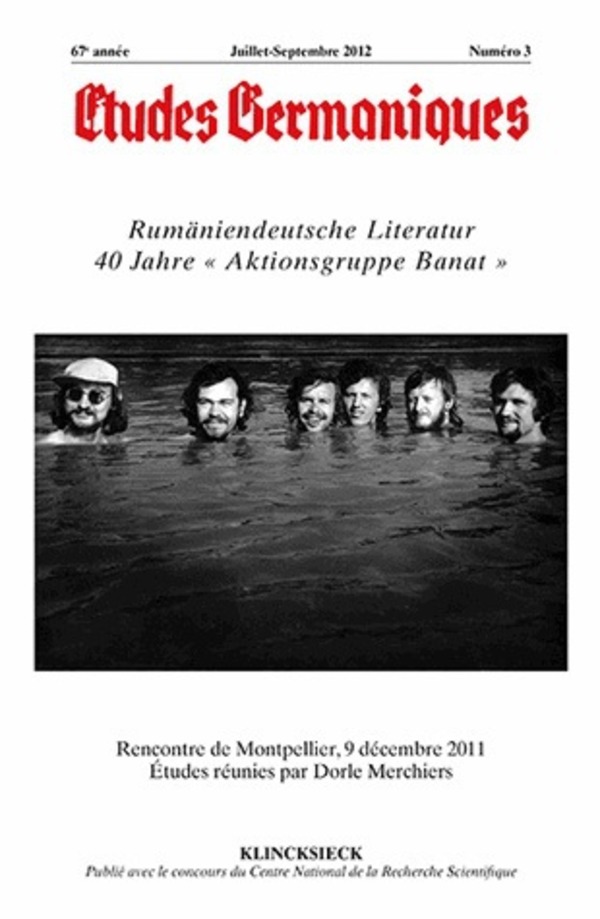Études germaniques
La revue Études germaniques a pour but d’informer avec un grand souci d’impartialité et d’objectivité scientifique tous ceux qui s’intéressent à la vie du monde germanique (Allemagne, Suisse, pays scandinaves et néerlandais, études yiddish et judéo-allemandes), aussi bien sur des questions qui touchent à la linguistique, à la littérature, à l’histoire, à la philosophie, à l’art, à la religion — en un mot à la civilisation — qu’à celles qui relèvent de l’actualité et qui sont étudiées dans un esprit de savants et non de partisans.
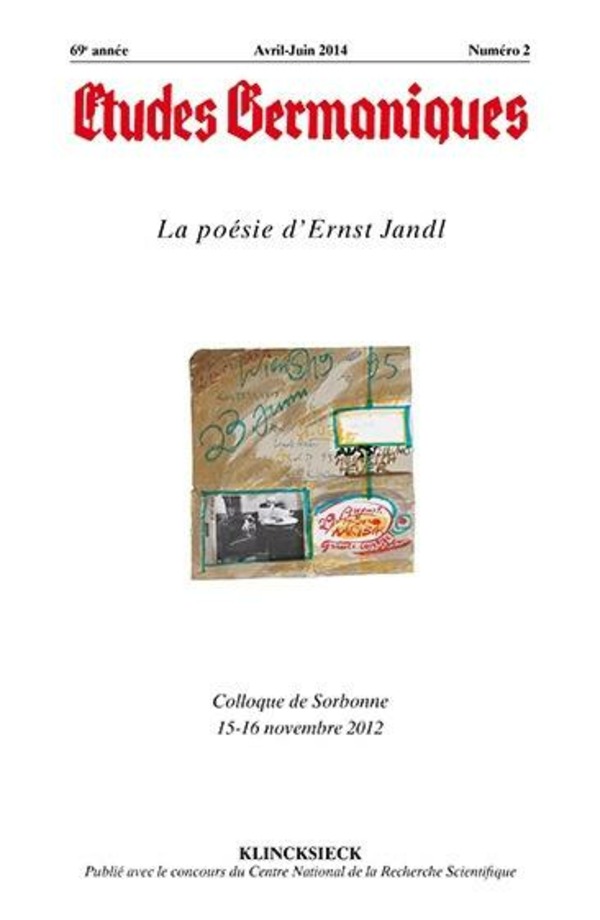
Études germaniques - N°2/2014
La poésie d'Ernst Jandl
RESUMES Laurent CASSAGNAU, Voir le corps de la langue, écouter la langue du corps. Ernst Jandl et la critique du logocentrisme.This article discusses the work of Ernst Jandl from the viewpoint of those twentieth century thinkers who challenge the idea of a transcendent logos, which pervades the Western tradition in...
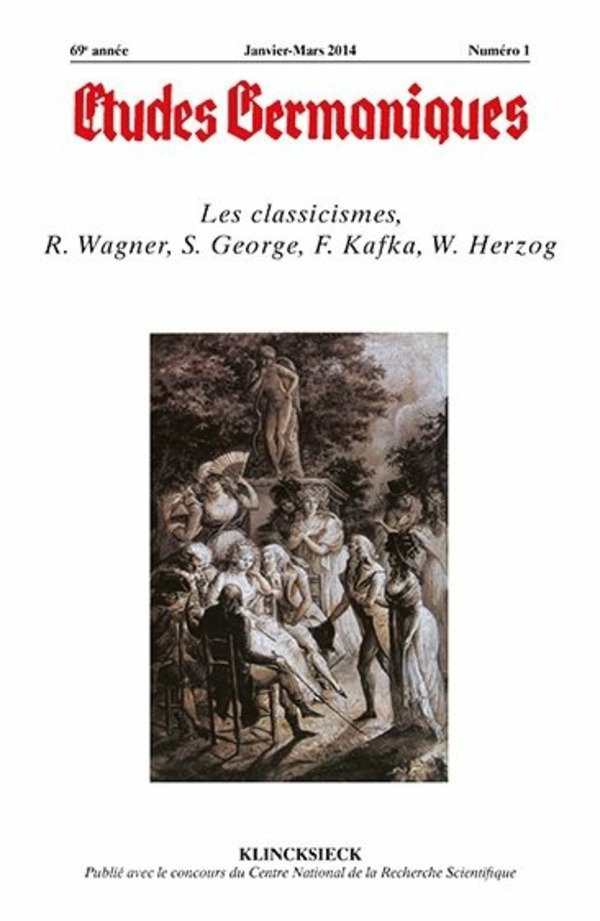
Études germaniques - N°1/2014
Les classicismes, R. Wagner, S. George, F. Kafka, W. Herzog
René Sternke : Klassikentwürfe als Visionen zur Krisenbewältigung In order to for us to understand the motivation behind classical phenomena, three concepts of classicism are analyzed. Frederick II of Prussia proposes the vision of a German classicism in response to the absence of a German language and literature adequate to...
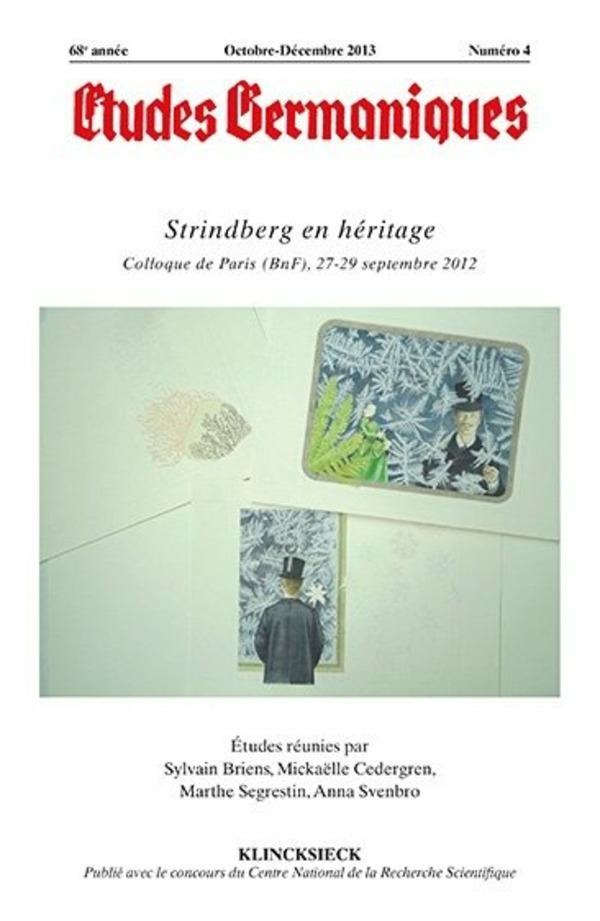
Études germaniques - N°4/2013
Strindberg en héritage (Colloque de Paris BNF, 27-29 septembre 2012)
Gunnel ENGWALLStrindberg, journaliste français During his lifetime, August Strindberg participated not only in the Swedish newspaper debate but also in the French. The first contribution was published in 1883 and the last in 1911, with a concentration to the years 1885-1887 and 1894-1898, e.g. during Strindberg's longer stays in France....
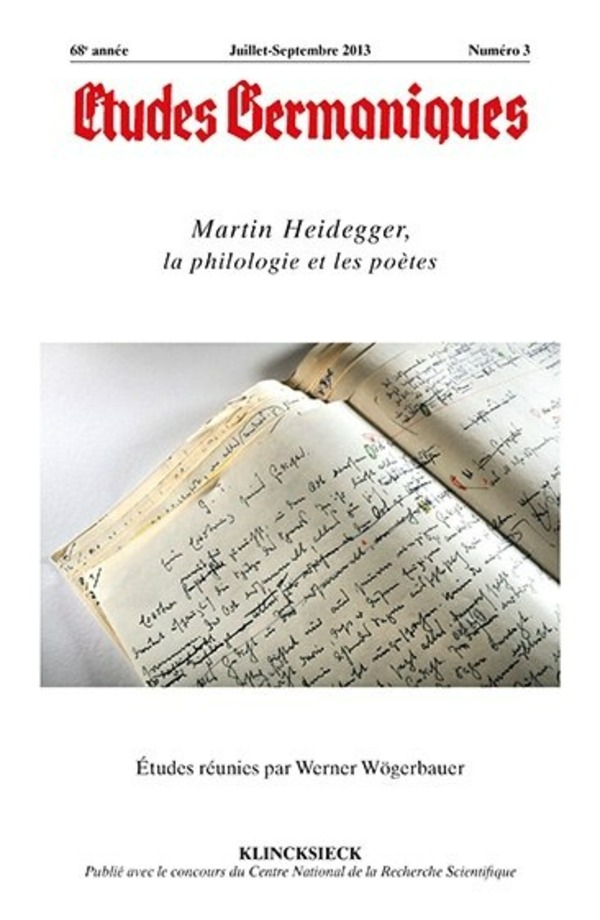
Études germaniques - N°3/2013
Martin Heidegger, la philologie et les poètes
Denis THOUARD : Voir dans les mots. L'herméneutique de la phénoménologie The article examines the development from a Heidegger-inspired phenomenology to an idiosyncratic kind of hermeneutics. It is shown that Heidegger clearly diverges from previous hermeneutics and splits up Dilthey's philosophical project : he radicalizes the analysis of understanding but...
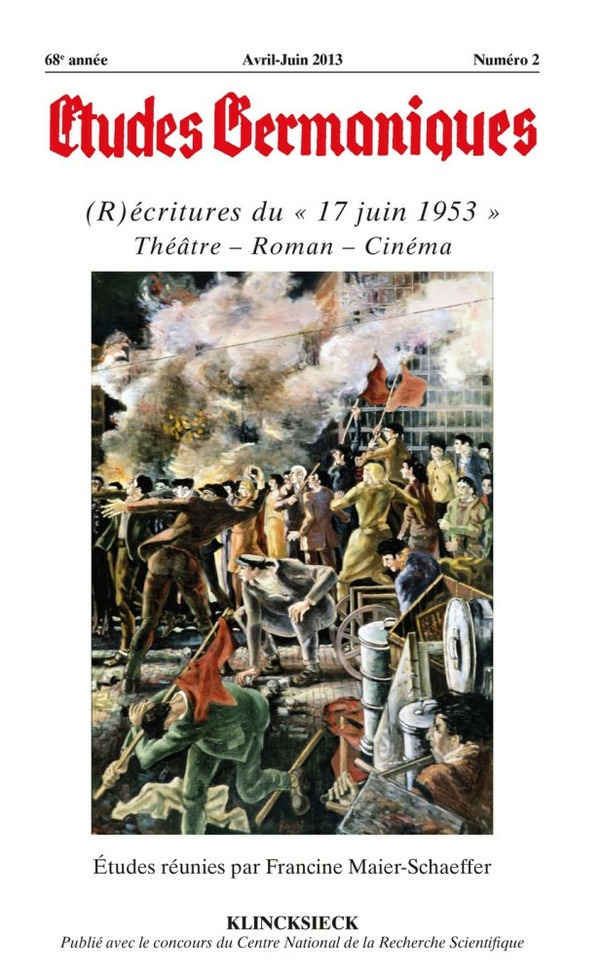
Études germaniques - N°2/2013
(R) écritures du '17 juin 1953", Théâtre - Roman - Cinéma
Richard BLANCHET : Le 17 juin 1953 : stratégies filmiques et enjeux du film Zwei Tage Hoffnung de Peter Keglevic Peter Keglevic's movie Zwei Tage Hoffnung deals with the events of the 17th of June 1953, which are still differently interpreted by historians. His movie was intended to reach the...
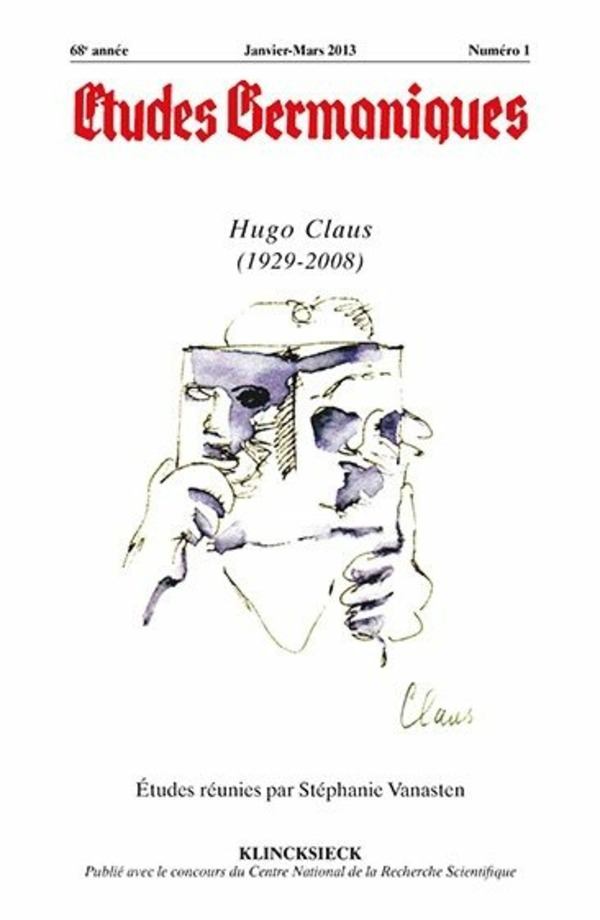
Études germaniques - N°1/2013
Hugo Claus (1929-2008)
Julien VERMEULEN : Hugo Claus à New York (1959) In 1959-1960, Hugo Claus spent six months in the US, Mexico and Cuba. In the course of his trip he wrote down a number of impressions and experiences which he later turned into a cycle of poems, entitled "Reportage" (1961). In...
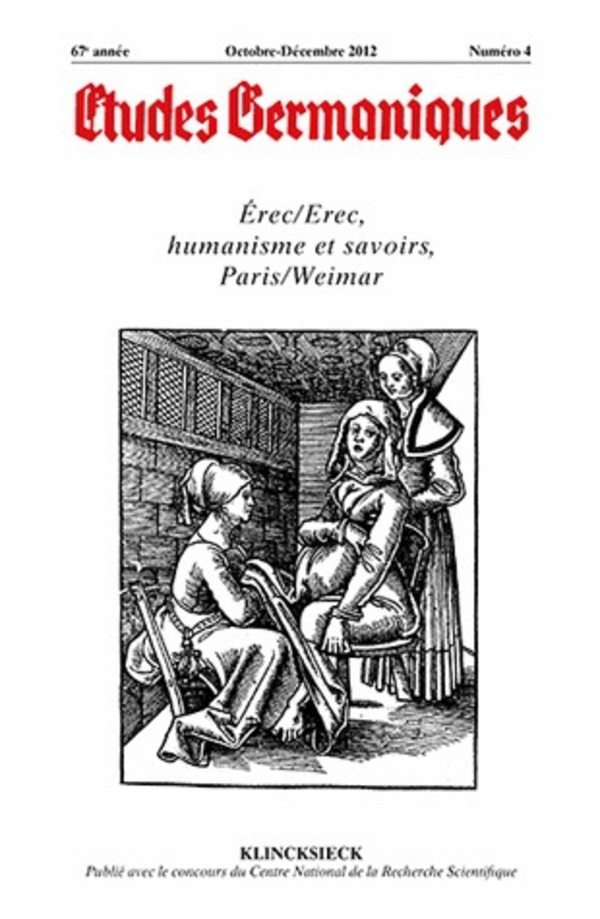
Études germaniques - N°4/2012
Érec/Erec, Humanisme et savoirs, Paris/Weimar
Christophe THIERRY, Puissance et Sagesse dans Erec de Hartmann von Aue et Érec et Énide de Chrétien de Troyes – des références au De gratia de Bernard de Clairvaux ? Did Chretien de Troyes draw his inspiration from the treatise De gratia ...
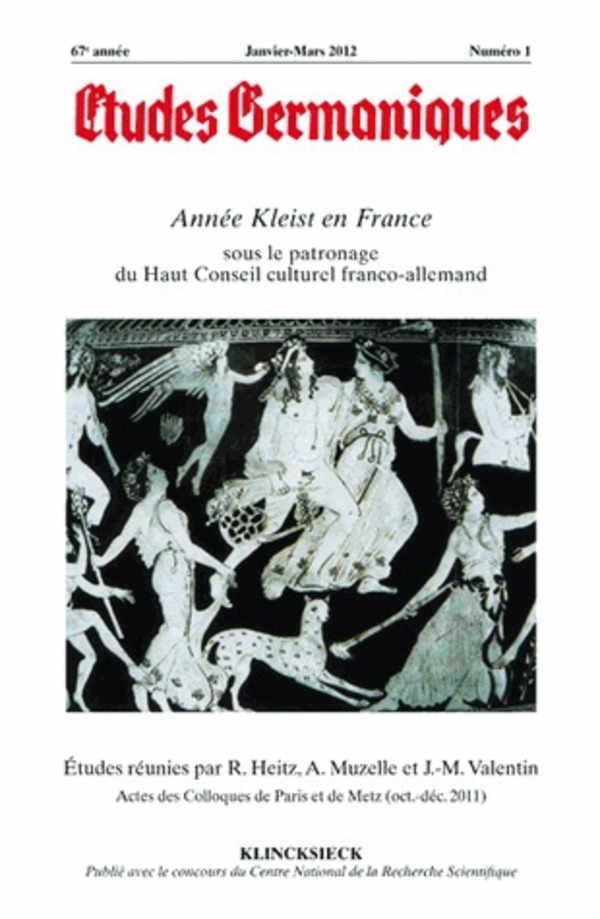
Études germaniques - N°1/2012
Année Kleist en France
Jean-Marie VALENTIN, ὀρειϐασια, σπαραγµός, ὠµοφαγια. Kleist, Penthésilée et le retour du dionysiaque euripidien This article deals in the first place with the philosophical interpretation of the tragic by Schelling and its consequences for the ...
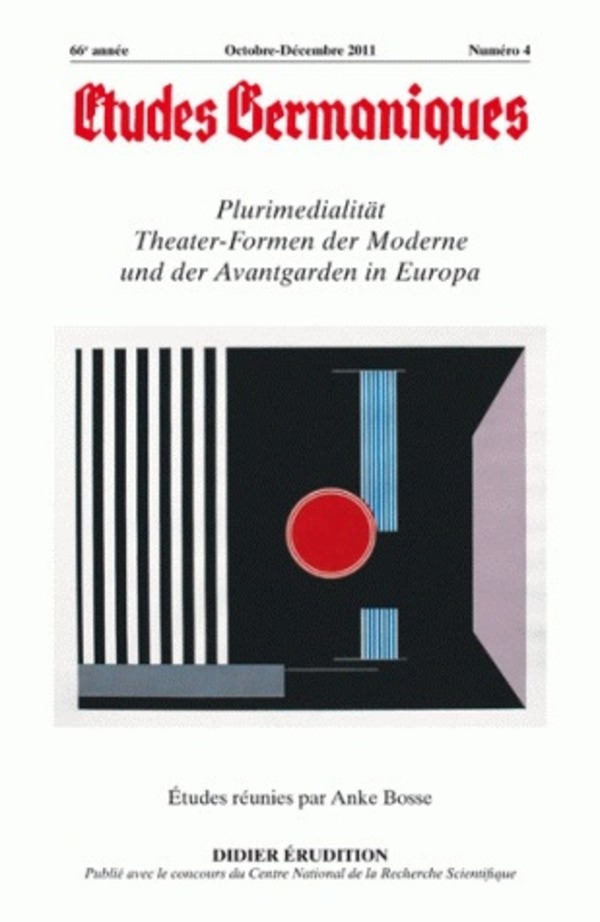
Études germaniques - N°4/2011
Plurimedialität. Theater-Formen der Moderne und der Avantgarden in Europa
Medienkulturgeschichtliche Verortung des Theaters in der Moderne Theatre is not a simple medium. On the one hand, it is a performative art form that involves all the human senses : it lives from the spoken word, captivating voices and intonations and ...
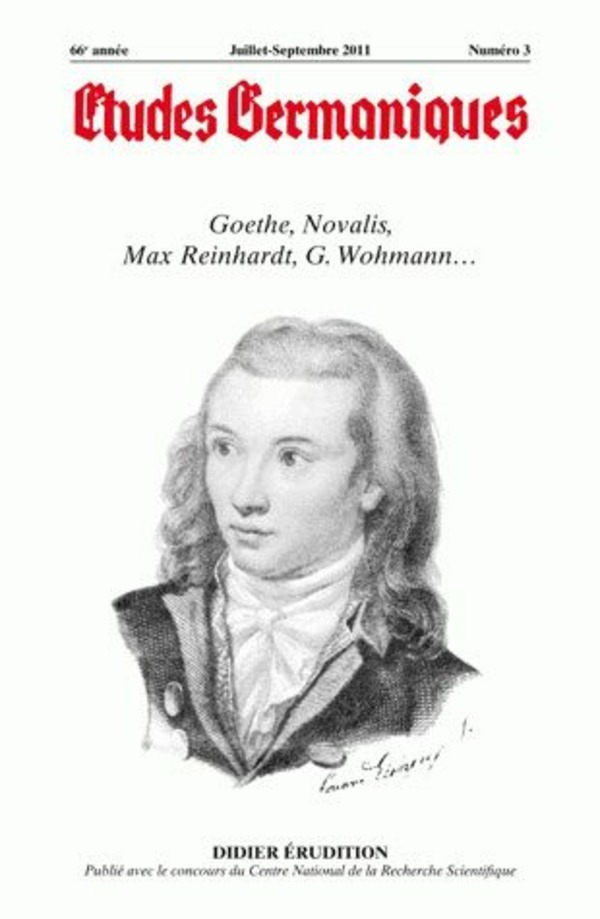
Études germaniques - N°3/2011
Gœthe, Novalis, Max Reinhardt, G. Wohmann...
Theo BUCK, Die Einflüsse von Molière, Voltaire und Diderot auf das Werk Goethes Goethe considered the 17th and 18th century as a "great, strong time" for french litterature. Especially towards the works of Molière, Voltaire and Diderot he showed a ...
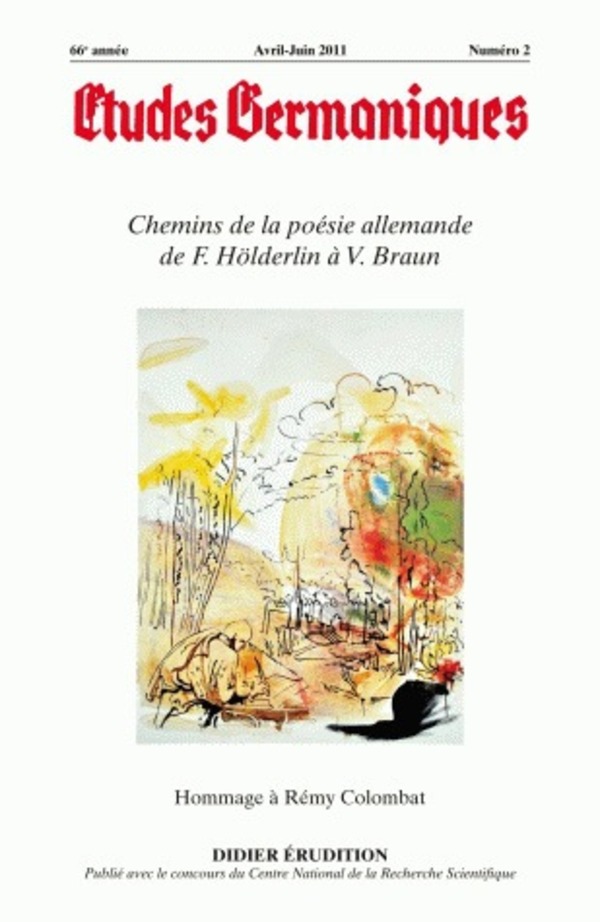
Études germaniques - N°2/2011
Chemins de la poésie allemande de F. Hölderlin à V. Braun
Jean-Pierre LEFEBVRE — Guerre et paix autour de Friedensfeier For want of material or philological elements that could help provide an answer to his questions, the author combines an immanent interpretation of H's wellknown hymn Friedensfeier, taken ...
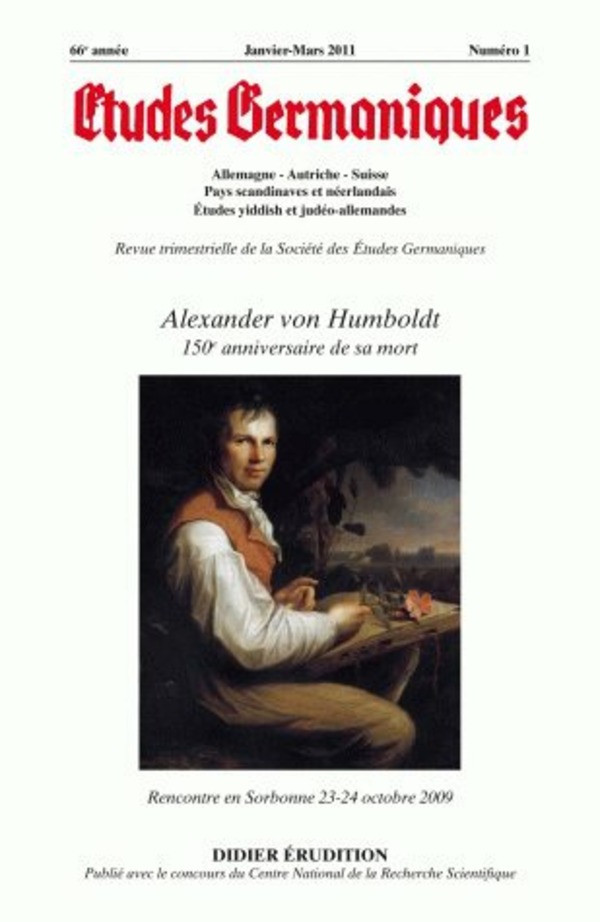
Études germaniques - N°1/2011
Alexander von Humboldt - 150e anniversaire de sa mort
Ulrich PÄSSLER - Alexander von Humboldt. Savant entre la France et la Prusse During the time of eight extended visits to Paris between 1830 and 1848, Alexander von Humboldt acted as an intermediary between the scientific communities of Prussia and ...
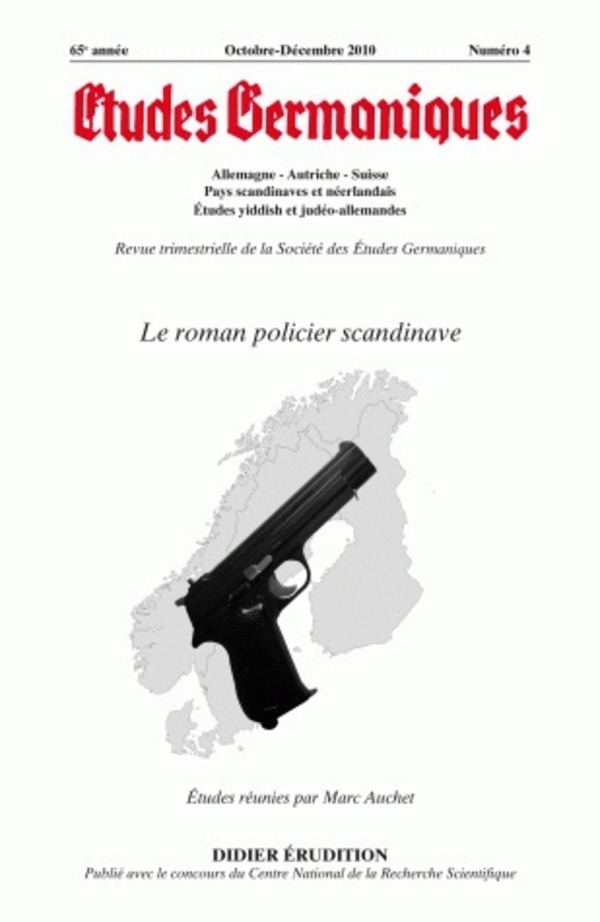
Études germaniques - N°4/2010
Le roman policier scandinave
Hans H. SKEI - Le roman policier norvégien dans le contexte scandinave hier et aujourd'hui In this essay I offer a brief introduction to Scandinavian crime writing, with heavy emphasis on the last couple of decades, before I move on to a brief and ...
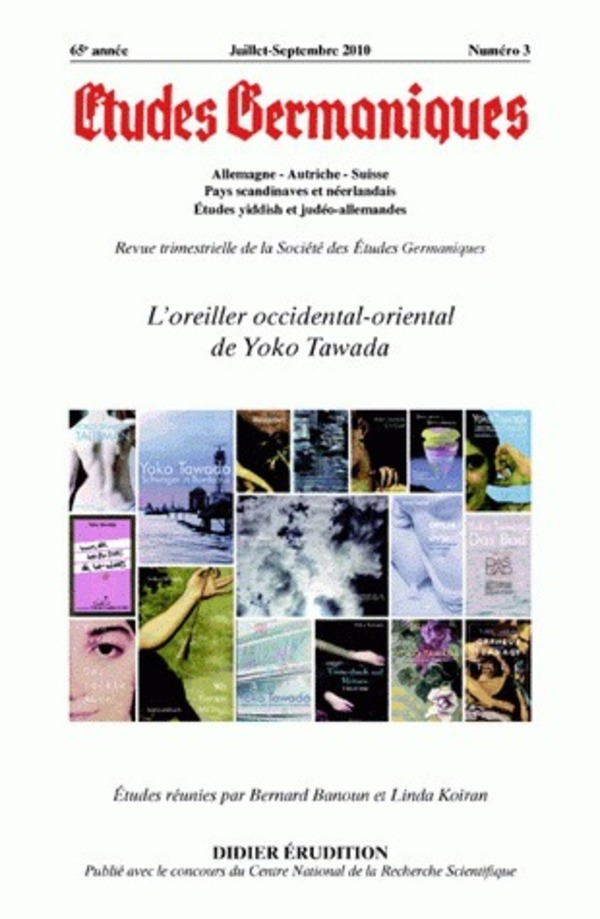
Études germaniques - N°3/2010
L'oreiller occidental-oriental de Yoko Tawada
Cécile SAKAI Tawada Yôko et le mystère de l'écriture The paper « Tawada Yôko and the Enigma of Writing » develops an evaluation of Tawada's specific approaches to the question of the literary language through one of its aspects : writing as the ...

